By Rishikeesh Wijaya*
 Uproar about purported ‘abuses’ of diplomatic immunity has not been uncommon, most recently involving the wife of the sitting Head of State of Zimbabwe, Dr. Grace Mugabe. Media reports assert that Dr. Mugabe attacked a South African model with a piece of electrical cord in a Johannesburg hotel suite. South Africa retrospectively granted her diplomatic immunity, following an assertion by the Embassy of Zimbabwe, and she eventually left the country to return to Zimbabwe with no charges pressed against her.
Uproar about purported ‘abuses’ of diplomatic immunity has not been uncommon, most recently involving the wife of the sitting Head of State of Zimbabwe, Dr. Grace Mugabe. Media reports assert that Dr. Mugabe attacked a South African model with a piece of electrical cord in a Johannesburg hotel suite. South Africa retrospectively granted her diplomatic immunity, following an assertion by the Embassy of Zimbabwe, and she eventually left the country to return to Zimbabwe with no charges pressed against her.
This was a “U-turn” from the initial decision preventing her from leaving pending the outcome of investigations. Deputy President of South Africa, Mr. Cyril Ramaphosa in response to questioning by South African Members of Parliament, said that immunity was granted in line with “internationally-recognised immunity regulations” but also admitted that it was “the first time [they] have utilized this type of convention”. It is unclear what convention he was referring to.
A separate incident occurred during Turkish President Erdogan’s trip to the United States America in May 2017. Members of his security detail and security guards from the Turkish embassy clashed with peaceful protestors outside the home of the Turkish ambassador in Washington DC.
Diplomatic immunity was initially claimed by Turkish authorities but it has now been reported that 19 people, including 15 identified as Turkish security officials were indicted by a grand jury in Washington DC. Several of these security officials returned to Turkey and it is unclear if there will be any legal repercussions in the United States. It is also unclear if any of those indicted remain in the US as diplomatic staff for Turkey. Continue reading

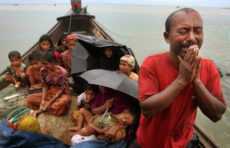 While a lot of attention has been devoted to North Korea and referendum in Northern Iraq, comments must be made on one of the most tyrannous mass human rights violations of the last couple years. Recently, news on Myanmar and Rohingyas started to hit the headlines again. Graphic pictures and videos from the decades-long conflict zone Arakan, a.k.a Rakhine state, have started to spread in some news and social media sites. Although the State Peace and Development Council of Myanmar does not recognize the Rohingyas as one of the
While a lot of attention has been devoted to North Korea and referendum in Northern Iraq, comments must be made on one of the most tyrannous mass human rights violations of the last couple years. Recently, news on Myanmar and Rohingyas started to hit the headlines again. Graphic pictures and videos from the decades-long conflict zone Arakan, a.k.a Rakhine state, have started to spread in some news and social media sites. Although the State Peace and Development Council of Myanmar does not recognize the Rohingyas as one of the 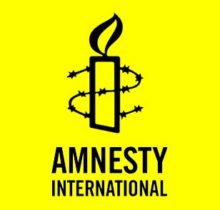 Amnesty International has recently launched an advocacy platform, called Amnesty International’s Human Rights in International Justice Project.
Amnesty International has recently launched an advocacy platform, called Amnesty International’s Human Rights in International Justice Project.
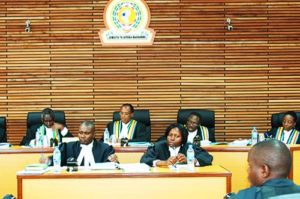 This post exposes a major obstacle facing one of the African regional economic community judiciaries: the
This post exposes a major obstacle facing one of the African regional economic community judiciaries: the 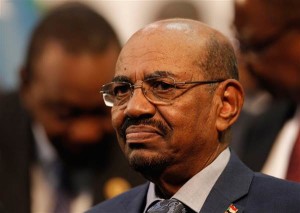
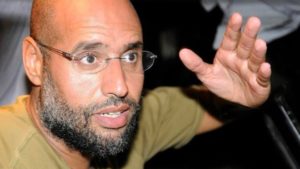 The Prosecutor of the
The Prosecutor of the 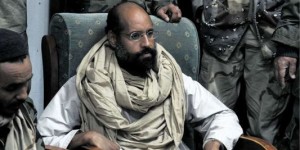 Saif al-Islam Gaddafi, the son of fomer Libyan leader Muammar Gaddafi, has been
Saif al-Islam Gaddafi, the son of fomer Libyan leader Muammar Gaddafi, has been 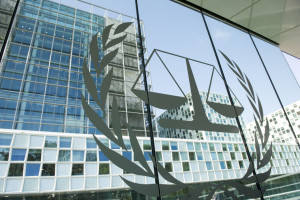 In its 15 years of existence, the International Criminal Court is undergoing an acceptance crisis especially on the African Continent. Political narratives have significantly shaken the Court’s legitimacy and has led to the questioning of its relevance in today’s world.
In its 15 years of existence, the International Criminal Court is undergoing an acceptance crisis especially on the African Continent. Political narratives have significantly shaken the Court’s legitimacy and has led to the questioning of its relevance in today’s world.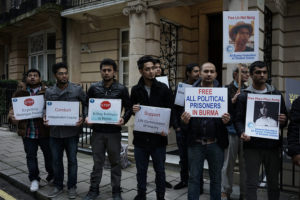 In February, the Office of the United Nations High Commissioner for Human Rights (OHCHR) issued a
In February, the Office of the United Nations High Commissioner for Human Rights (OHCHR) issued a